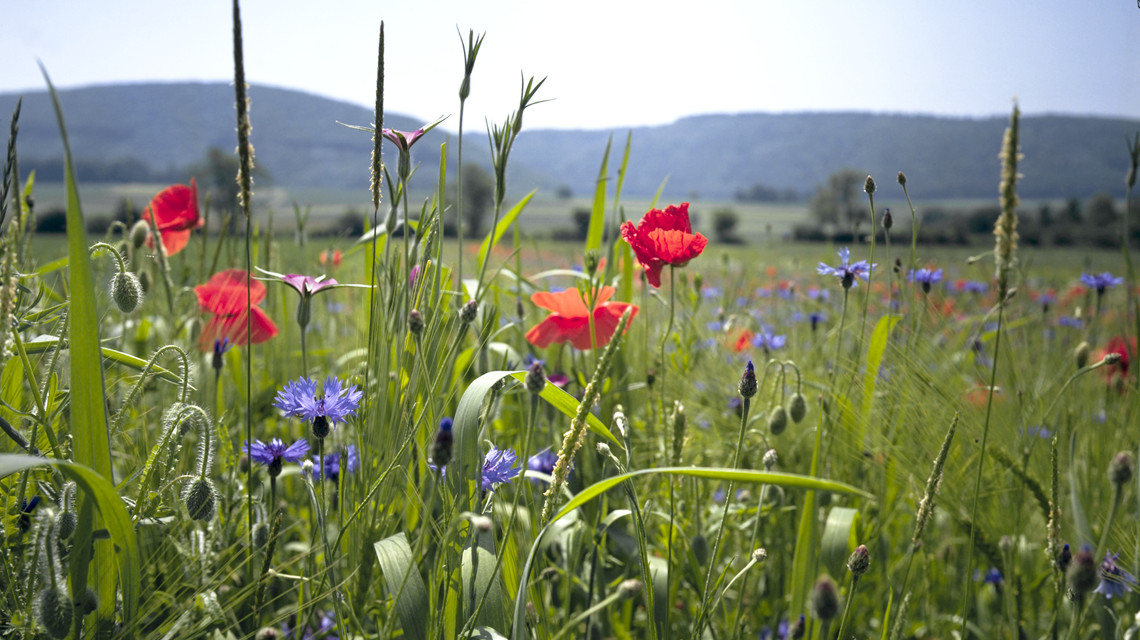World Summit for the Protection of Biodiversity
The 2018 UN Biodiversity Conference, held until the end of November in Sharm El-Sheikh, Egypt, focusses on the implementation of global goals for the protection of biodiversity.

In 2010, 196 member states of the United Nations adopted the Strategic Plan for Biodiversity of the Convention on Biological Diversity (CBD), an international treaty for the conservation of biodiversity, the sustainable use of the components of biodiversity and the equitable sharing of the benefits derived from the use of genetic resources. The parties adopted a comprehensive "Strategic Plan" to halt the progressive loss of animal and plant species by 2020. In addition to five strategic goals, this plan contains twenty specific core goals, the so-called Aichi biodiversity goals. These include, for example, halving the loss of natural habitats, ending harmful subsidies and stopping overfishing of the world's oceans by 2020. But where are we with regard to the implementation of the measures agreed at the time?
Implementing global biodiversity goals
The UN member states are currently discussing this at the UN Biodiversity Conference in Sharm El-Sheikh, Egypt. During the meeting, which will take place from 17 to 29 November, there will be discussions on whether and how the global biodiversity goals can be achieved by 2020. At this year's conference, the participants also want to formulate new goals and strategies for the period after 2020. A further focus will be the question of how the protection of biological diversity can be better taken into account in energy production, infrastructure projects and health care.
Turnaround in biodiversity conservation heralded
Germany, represented by the Federal Ministry for the Environment (BMU), hopes that the congress will herald a turnaround. "We continue to lose large numbers of animal and plant species every day and are destroying habitats worldwide - despite ambitious global goals to protect biodiversity. A turnaround is overdue," explains State Secretary Jochen Flasbarth. In many areas of politics and business, the protection of biological diversity is still not sufficiently addressed, continued Flasbarth. "At the conference in Egypt, we want to jointly set a new starting point for tackling this challenge".
500 million euros for species protection
Since 2007, the Federal Government has been implementing the United Nations Strategic Plan within the framework of the National Strategy on Biological Diversity. Since 2013, 500 million euros have been invested annually in the global protection of biodiversity. According to the BMU, Germany is one of ten countries that have already more than doubled their financial contributions in 2015 compared to the average from 2006 to 2010.
In Sharm El-Sheikh, Flasbarth confirmed Germany's commitment to international biodiversity protection: "We stand by our commitments and will continue to do so in the future. But money alone is not enough – we also have to stop the major trends of the destruction of nature". However, he also sees Europe as having a responsibility here, especially in implementing the forthcoming agricultural reform.
World Biodiversity Summit 2020 in China
The next Biodiversity Conference will take place in China in two years' time. There, goals and strategies for the coming decade are to be decided. According to Flasbarth, however, the preparatory work must begin today: "We now have two years to review what we have done right and wrong in our dealings with nature during this decade. We must then draw the right and forward-looking conclusions from this. We must not allow another decade of loss of nature on our planet."


